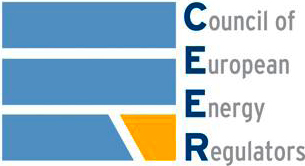
CEER - Factsheet: Customer rights
Introduction
A range of European legislation addresses the rights of energy consumers, placing a responsibility on national governments and energy regulatory authorities to protect and empower energy consumers. These are implemented into national legislation (and may complement other national measures). The 2009 3rd Package of EU energy liberalisation laws reinforced energy consumers' rights and the responsibilities of public authorities in this area. Visit the European Commission’s Directorate General for Energy for an overview of the EU’s energy laws.
In addition to energy-specific rights, the EU has also established rules on general consumer issues, including unfair commercial practices, distance or doorstep selling and contract transparency. Visit the European Commission’s Directorate General for Health and Consumers for an overview of the EU’s general consumer rights laws.
Your energy rights
Collectively, EU consumer rights for energy can be grouped under 6 headings:
• Universal service (i.e. your right to be supplied with electricity/natural gas)
• Customer information requirements
• Supplier switching
• Complaint handling and out-of-court dispute settlement
• Protection of vulnerable customers
• Fair commercial practices and general consumer righ
- Universal service
Consumers have the right to be supplied with electricity and natural gas of a certain quality within their territory at reasonable, easily and clearly comparable, transparent and non-discriminatory prices. To ensure the provision of universal service, Member States can appoint a supplier of last resort (SoLR). This SoLR would step in to provide energy to those consumers who, for example, have not chosen a supplier or whose current supplier fails, becomes insolvent or in other special situations.
- Customer information requirements
Having the right information at one’s disposal can make a difference in being able to exercise one’s rights and take part actively in the energy market. Customers have a right to a variety of information related to their energy supply, including:
- information on their real consumption data and access to that data at no charge;
- detailed information of their rights in contracts and bills;
- information on applicable prices and tariffs and standard terms and conditions (and any changes to these);
- information on the choice of payment methods;
- information (in their bills) regarding the fuel mix of the energy they have been supplied with as well as a reference to existing reference sources, such as web pages, where information on the environmental impact, in terms of at least CO2 emissions and the radioactive waste resulting from the electricity produced in the overall fuel mix is publicly available; and
- information on how to access complaint handling or out-of-court settlement services.
- Supplier switching
In open and competitive energy markets, consumers have the right to choose their supplier and to change suppliers if they so wish. The possibility of consumers to exercise this power (to switch) should place a competitive pressure on suppliers to deliver the best services at the best prices. EU law requires that supplier switching should be easy, free and be carried out within three weeks of informing the concerned parties. In addition, following any change of electricity supplier, the customer should receive the final closure statement/bill no later than six weeks after the change of supplier has taken place.
- Complaint handling and out-of-court dispute settlement
Should an energy customer have a complaint, EU legislation stipulates that energy customers should have access to transparent, simple and inexpensive procedures for dealing with their complaints. In particular, all consumers have the right to a good standard of service and complaint handling by their energy service provider. Such out-of-court dispute settlement procedures shall enable disputes to be settled fairly and promptly, preferably within three months, with provision, where warranted, for a system of reimbursement and/or compensation. In addition, energy suppliers must provide information to customers on how to access complaint services and procedures for settlement of disputes.
More specifically, Member States must ensure that an independent mechanism such as an energy ombudsman or a consumer body is in place in order to ensure efficient treatment of complaints and out-of-court dispute settlements.
- Protection of vulnerable customers
Member States must ensure that there are adequate safeguards to protect vulnerable customers. In this context, each country must define the concept of vulnerable customers which may refer to energy poverty and, inter alia, to the prohibition of disconnection of electricity/gas to such customers in critical times. Furthermore, Member States also have to take appropriate measures, providing benefits in social security systems, for example, to ensure the necessary energy supply to vulnerable customers. In many European countries, vulnerable customers are protected through a combination of energy specific protection measures and social security benefits.
- Unfair commercial practices and general consumer rights
The EU’s Unfair Commercial Practices Directive (Directive 2005/29/EC) provides a set of harmonised rules against unfair commercial practices (such as misleading and aggressive marketing), with the aim to enable consumers to make informed choices.
The EU Consumer Rights Directive (Directive 2011/83/EU) sets out customer rights relating to price transparency, hidden costs on internet sales and right of withdrawal from sales contracts completed online, by phone or mail order. The Directive merges measures and rights previously addressed in multiple legal acts into one set of rules. It updates and modernises existing consumer rights, bringing them in line with technological change (e-commerce, online auctions) and strengthening provisions in the key areas where consumers have experienced problems in recent years – particularly in sales negotiated away from business premises (e.g. door to door selling). The Directive should be transposed by Member States into national laws by 13 December 2013.